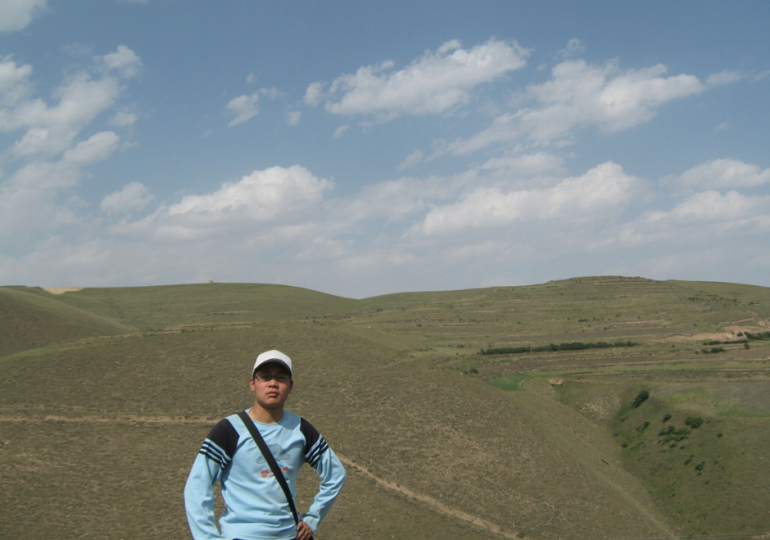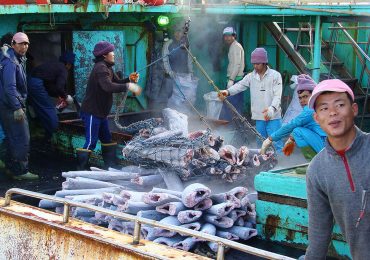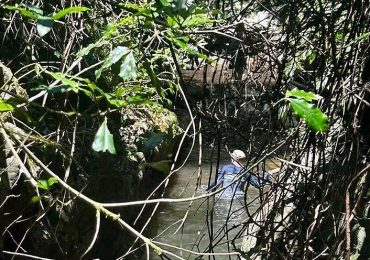In this blog post, we hear from Senior Editor Ji Chen, Professor at the Institute of Earth Environment, Chinese Academy of Sciences! Ji’s research focuses on uncovering the mechanisms that regulate carbon, nitrogen, and phosphorus dynamics in ecosystems in response to global change drivers and anthropogenic disturbances. During his Ph.D., he examined how ecosystem CO₂ exchange responds to experimental warming, herbivory grazing, and prescribed fire, and explored the underlying biophysical mechanisms. In his postdoctoral work, Ji investigated how soil carbon, nitrogen, and phosphorus cycling—mediated by microbial communities and extracellular enzymes—responds to nitrogen enrichment, drought, and altered precipitation regimes. Currently, Ji’s research centers on how farmland management practices influence ecosystem nutrient dynamics, with a particular emphasis on extracellular enzyme processes. He employs a diverse suite of approaches, including field manipulative experiments, laboratory incubations, meta-analyses, data assimilation, and data-driven modeling. The overarching goal of Ji’s work is to enhance the resilience, resource efficiency, and sustainability of ecosystems under accelerating global change.
Why did you choose study your particular area research?
I grew up as a farm boy, spending much of my childhood in the fields where my parents worked. Surrounded by crops, weeds, and insects, I developed a deep fascination with the natural world. I often spent entire afternoons observing butterflies or digging for earthworms, captivated by the diversity of life around me. From an early age, I was curious about the interactions between crops, weeds, and insects—how they coexist in the same farmland and what ecological roles they play. This curiosity motivated me to pursue my studies at an agricultural university after high school. There, I came to understand the profound impacts of rapid climate change on plants, animals, and ecosystems—revealing that these interactions are even more complex than I had imagined. The vast unknowns in the natural world continue to inspire me, driving my passion to explore the intricate relationships and underlying mechanisms that govern ecosystems.
What are the current questions in ecology that you hope to address?
Currently, my research group is investigating strategies to protect soil organic matter (SOM) across diverse ecosystems in the context of global change. We adopt an integrative approach that considers the interactions among plants, soils, and animals to better understand SOM dynamics in an era of rapid climate change and intensified human activities. Our research is guided by three central questions: (1) What is the potential upper limit of SOM across different ecosystems? (2) How can we enhance the protection and persistence of SOM to support ecosystem sustainability and climate change mitigation? (3) What are the key biotic and abiotic drivers regulating SOM dynamics under global change scenarios?
What is one of the biggest challenges you have faced in your career?
I completed my Ph.D. at the Chinese Academy of Sciences and later secured a tenure-track researcher position in Denmark. In the early years, I faced significant challenges in securing research funding, largely due to differences in proposal writing conventions and the cultural adjustment. The repeated rejection of my proposals was deeply frustrating. However, with guidance and support from my colleagues, I gradually learned how to craft competitive European research proposals. By combining the strengths of both Chinese and Danish proposal-writing styles, I was eventually able to secure fundings. Overcoming this challenge not only enhanced my ability to communicate my research ideas effectively but also strengthened my resilience as a scientist. Today, I am deeply committed to fostering international collaboration and cross-cultural scientific exchange.
What’s next for your research?
Interactions among plants, soils, and animals can have profound cascading effects on SOM dynamics. However, most existing studies have focused on their individual effects in isolation. While recent research has begun to highlight the significance of plant–soil interactions and their implications for SOM, many aspects of these complex relationships remain poorly understood. Moving forward, our research group will focus on integrating plant, soil, and animal interactions to investigate their combined influence on SOM dynamics. We will also explore the underlying mechanisms driving SOM processes under global change, with particular emphasis on the role of soil microorganisms.
Why are you looking forward to serving as a Senior Editor?
As I transition from an early-career researcher to a fully independent scientist, I am increasingly motivated to deepen my understanding of ecological theory and its application to the living world. Serving as a Senior Editor provides a valuable opportunity to champion innovative research that bridges theoretical frameworks and empirical studies in functional ecology. This role also enables me to expand my professional network through interactions with associate editors, reviewers, and authors. Moreover, it offers a unique vantage point to identify emerging research trends and contribute to addressing key challenges—such as upholding rigorous peer-review standards and promoting greater representation of research from underrepresented regions.
What are some of the common mistakes you see in papers? How might these be addressed by researchers?
A common pitfall I frequently encounter is poorly defined scientific questions or hypotheses. In some cases, this stems from a disconnection between the stated hypotheses and the results presented—an issue that could often be resolved by revising the hypotheses to better align with the findings. Overinterpretation of results is another frequent concern. Some manuscripts emphasize statistical significance without addressing biological or ecological relevance; a p-value alone does not convey ecological meaning. Additional issues include overgeneralizing findings beyond the scope of the study and failing to engage with existing conceptual frameworks, such as trait-based ecology. These shortcomings can often be addressed by clearly presenting effect sizes, explicitly acknowledging study limitations, and situating results within established theoretical contexts.
What submissions would you like to see more of?
I would like to see more submissions that explore the interactions among plants, soils, and animals, and their implications for functional ecology. In addition, I encourage submissions that apply state-of-the-art technologies to deepen our understanding of classical questions in functional ecology.
Why Functional Ecology?
Functional Ecology stands at the forefront of ecological research, playing a pivotal role in advancing mechanism-driven science. By embracing a wide range of approaches—from physiology to biochemistry—the journal has significantly deepened our mechanistic understanding of ecological patterns and processes across multiple scales in the context of global change. On a personal level, I am grateful to Functional Ecology for recognizing and elevating my early work linking soil enzymes to their roles in carbon, nitrogen, and phosphorus cycling under climate change. More broadly, the journal has helped reshape the field by providing conceptual frameworks—such as the “Mechanism–Function–Service” continuum—that effectively bridge scales from organismal traits to ecosystem functioning.
What would you say are currently biggest challenges in ecology?
Two critical challenges stand out: (1) translating mechanistic ecological insights into actionable policies—communicating complex ecological relationships in a way that resonates with policymakers remains a significant hurdle; and (2) addressing geographic inequities in research funding and infrastructure, which calls for greater inclusion and participation of researchers from the Global South.
What advice would you give to early career researchers in ecology?
Three essential tips: (1) Master the “why” before the “how” — prioritize research questions with clear ecological significance rather than simply following trendy methods; (2) Embrace negative or non-significant results — these often provide valuable insights that challenge existing paradigms and lead to groundbreaking theories; (3) Build academic stamina — transformative research typically requires long-term datasets and repeated validation.
If there was one thing you could change about ecology, what would that be?
I would accelerate the shift from pattern-descriptive to prediction-capable ecology by prioritizing two reforms: (1) Mandatory data/code sharing with QA/QC standards, and (2) Graduate training in ecological forecasting tools.





